Hostilities over Nagorno-Karabakh region sporadic since 1991
Upon the dissolution of the Soviet Union, the unrecognized Republic of Artsakh with a majority Armenian population became Azeri territory.
It is easy to lose sight of simple truths, with outside forces fanning the flames of ethnic and religious differences, which may explain why a small country such as Armenia would even consider taking on Azarbaijan, a country twice its size and population.
No matter who is right and who is wrong neither side has won the war. Iran is calling for resolving the crisis by negotiation, while Turkey is backing one side against the other.
Hostilities over the disputed Nagorno-Karabakh region, which includes the self proclaimed Republic of Artsakh, has been ongoing since 1991. The region was occupied by Armenia after the dissolution of the USSR the Soviet Union. The UN Security Council has issued four resolutions calling for returning the lands to the Republic of Azerbaijan, all in vain.
Even Armenia hasn’t accepted the independence of the disputed area. Rather, it wants the Azerbaijani area annexed to Armenia.
Pursuant to international law, as the official mediator between these two nations, the Minsk group has been tasked with settling the conflict between them and finding a solution to a humanitarian life for Armenian people in the Azeri territory, which required negotiations between the parties. Unfortunately, the Minsk group has failed to fulfill this responsibility assigned to it by the international community and the UN. At the outset of the crisis in the 1990s, the group was active in leading talks. However, over the past 15 years, they have not pursued talks seriously and therefore this sticking point remains unresolved, thereby fanning the flames of tension between the two nations.
Abolfazl Amoui MP, National Security and Foreign Policy Committee
The dispute has now come to a halt but is far from over.
The ongoing conflict between Azeris and Armenians is one of those which we witnessed sporadically before the Russian Revolution. As you know, when both Azerbaijan and Armenia were part of Iran’s territory , Azeris and Armenians were living in peace. There were many Armenians in Baku and many Azeris lived in Yerevan. However, following the outbreak of War between Iran and tsarist Russia, leading to the detachment of these areas from Iran, tsarist Russia and subsequently the Soviet Union, in a bid to overcome their problems, sought to fan the flames of ethnic issues and foment nationalism. That is why we have been witnessing such confrontations.
Mr Khashe’, Director of the centre for Caucasian Studies
When the USSR took over Russian territories after World War One, it needed to placate many different ethnicities and state powers. So it simultaneously promised Nagorno-Karabakh to both Armenia and Azerbaijan.
When the USSR ultimately took firm control of their territories, it specifically designated Nagorno-Karabakh as the “Nagorno-Karabakh Autonomous Oblast” (NKAO). It was now a Federal District within Azerbaijan. That angered the mainly Armenian population.
In 1988, several years before the USSR collapse, conflicts broke out between Armenia and the Socialist Republic of Azerbaijan. After the 1991 collapse of the Soviet Union, the conflict intensified from 1992 to 1994 until a ceasefire was established. The ceasefire was in effect until April 2016 when renewed conflict erupted. A Russian-brokered truce was declared then. It was holding until last summer.
Mr Khashe’, Director of the centre for Caucasian Studies
The most recent conflict broke out in late September 2020, not in Karabakh but on the international border between Armenia and the Republic of Azerbaijan, to the north of the disputed area. It took only a few days, but turned into a full-scale war with support from Turkey.
Turkey intends to pit one tribe against another, by dispatching Azeri and Turkish forces to the conflict zone. Iran however, believes this war to also be a religious war by nature. Mr Beheshtipour, a Caucuses expert, refers to the original roots of the crisis; those deep in history.
The main issue in the Nagorno-Karabakh conflict is of territorial nature and pertains to sovereignty. These is no question of being Azeri or Armenian or being Muslim or Christian. The issue is territorial sovereignty over Karabakh. Citing USSR-era divisions, Azerbaijan lays claim to Karabakh. Following the collapse of the Soviet Union, the boundaries of all 15 Socialist republics were recognized and 15 nations were born based on Stalin-era demarcations.
Mr Beheshtipour, Caucuses expert
One would expect Iran to gravitate toward Azarbaijan, a Shia majority Muslim country which had until quite recently been part of Iran. With the ratification In 1813 of the Gulistan treaty after the first Russo-Persian war split the Azeri Iranian people into two.
While a portion was possessed by the Russian Tsar, then by the USSR and is now an independent state called the Republic of Azerbaijan with 9 million Azeris, the portion remaining in modern Iran has over 1.5 times that. All in all the Islamic Republic of Iran has up to 20 million indigenous Azeris.
Of course more Azeri ethnics are living in iran and fi you date back to history to 100 years ago, Azerbaijan republic belonged to Iran. Nowadays there is a kind of interference by outside powers in order to create dispute between iran and its neighboring states in order to show their support for Azeri’s living in Iran. So the Iranian government should be careful about such activities especially on behalf of turkey and Azerbaijan.
Mr Rezvanpour Caucasus affairs expert, expediency council member
Iran maintains neutrality
When we say Iran is neutral, it means active and positive neutrality. What does it mean? It means that Iran has never recognized Armenian occupation of the territory. Rather Iran has openly rejected Armenia’s occupation of Azeri territory. However, Iran has not resorted to military or non-military action in favor of Armenia or Azerbaijan. The reason is that Iran maintains it is a historical dispute stemming from territorial sovereignty and there is no military solution to this issue. They have to embrace talks for which an independent and neutral mediator is required. A country currying favor with either side could not be a qualified mediator.
Mr Beheshtipour, Caucuses expert
Turkish motives
Despite part of Azarbaijan still being in Iran, Tehran, unlike Ankara makes no claim.
Turkey’s policy has various aspects. It is partly related to its rivalry with Russia and partly to its rivalry with Iran. It would be unrealistic to think that Turkey would be envisaging any attachment of Azerbaijan. However, Turkey has always sought land communications with Iran and the Iran-Armenia border cuts such communications. Turkey wishes to be linked with the Republic of Azerbaijan, the Caspian Sea and Central Asia.
Mr Khashe’, Director of the centre for Caucasian Studies
Turkey has dispatched different kinds of military equipment and personnel, from northern Syria.
They have hired different kinds of warlords and sending them by Toyotas to the frontiers between Azerbaijan and Armenia in order to fight on behalf of the Azeri government. So this is a condition in which the clash of interest between Iran, turkey and Azerbaijan will be very visible.
While Azerbaijan is a brother state, Armenia is also a neighbour and cousin state. Also, Armenia has long enjoyed steady relations with Iran, especially in the energy sector. Azerbaijan on the other hand invited in Israel for support. Secular Azerbaijan was one of the first Islamic countries to establish relations with this enemy of the Islamic world.
Azerbaijan Israel ties
The history of the Zionist regime shows that its presence everywhere has been negative and non-constructive. It endangers security rather than guarantees it. The Zionist regime owes its survival to causing division. Its illegitimate life benefits from any conflict between others. We are worried about the presence of Israelis everywhere in the world, including around our own country. We expect all nations to take into account the destructive role of this regime. That is why the Zionist regime would not help guarantee security to any nation.
Abolfazl Amoui MP, National Security and Foreign Policy Committee
Whatever the motivation, Baku’s policy will only have yielded opposite results. For as long as Iran remains neutral, it insists it act as a mediator in peace talks. This is while Azerbaijan proposed Turkey.
That both undermines Iran’s position in the south Caucuses and invites in further foreign interference. Armenia will most likely veto Turkish mediation, and in Iran’s absence other countries will fill the seat at the negotiating table.
An honest mistake or mistaken honesty?
As things stand, the war is spilling into Iranian territory due to proximity alone. A number of artillery shells and rockets recently landed in Iranian territory, including a residential area, kilometers away from the battle zone.
We are facing challenges with our own territory now. More than 50 rockets have so far struck Iran’s territory. Some farmlands have been damaged. In border areas, I saw some homes that had been targeted. Both sides claim there have been shooting errors, but we cannot tolerate such conditions. We have issued serious warning to both sides to take their hostilities farther from Iran’s border. We have sensitive facilities in those areas. We have strategic dams located on the border Aras River. These dams supply both drinking water and irrigation water. Therefore we feel worried.
Abolfazl Amoui MP, National Security and Foreign Policy Committee
Israel has publicly harmed Iran AND threatened military strikes on this country. So the least Iran can expect of Azerbaijan is to comply with neighborly relations and keep shared borders free of hostile presences.
Iran has issued a grave warning against border encroachment
Iran has issued a grave warning, that should trans-regional armed forces be posted near its borders, it will take that as a serious security threat and target them on sight.
The Zionist regime sees the Islamic Republic of Iran as its arch-foe. That is why it prioritizes proximity to the borders of the Islamic Republic of Iran. That is why they have deployed along Iran’s border. The interesting point is that Israel’s military aid to Azerbaijan may be used against Iran. Israel is supplying drones to Azerbaijan. We have seen that the Zionist regime has been using this technology against the Islamic Republic of Iran. Therefore, in addition to selling arms, the Zionist regime is pursuing other objectives.
Mr Khashe’, Director of the centre for Caucasian Studies
The war between Baku and Armenia involves all regional powers Iran, Turkey and Russia. And the latter two are not impartial. Clearly this means the conflict can blow up into a vast regional war and turmoil, and instability of unpredictable dimensions and scale. A broken fabric of regional relations will only invite in a foreign presence into too many cracks to clear and seal any time soon.
No peace plan is envisaged in the Nagorno-Karabakh conflict without taking into consideration the interests of Iran, Turkey and Russia. Russia shares border with Azerbaijan while Turkey shares long border with Armenia. For its part, Iran shares border with Azerbaijan, the occupied Karabakh area, Armenia and Nakhichevan.
Mr Beheshtipour, Caucuses expert
Security prerequisite to economic growth
The Iranian government believes economic growth is not possible without security in the region. That is to say, any war and conflict will make people's lives more difficult in a situation where the COVID-19 pandemic has already caused a severe economic downturn.

One would expect more immediate and effective mediation to resolve an already existing dispute. But a vacuum of such brokership has caused what was a standstill to break out into the recent Nagorno-Karabakh Conflict. Officially Russia is THE regional mediator, as it co-chairs the Minsk Group together with the US and France.
Both warring parties asked for Iran’s mediation. The Armenian president and Azeri caretaker president travelled to Iran and even a truce agreement was signed. However, other regional actors did not favor Iran’s positive role in this conflict. That is why the truce was violated and Armenian forces targeted and occupied part of Azerbaijan’s territory.
Mr Khashe’, Director of the centre for Caucasian Studies
What is the Minsk Group looking for?
The Minsk Group is “morally bankrupt” and “interesting only for historians of diplomatic failures”, and has been so since its establishment. The historian Maxime Gauin astutely described its role as such, given it has achieved nothing in 28 years. Not a single square kilometer was evacuated by Armenia.
The heads of state from the Minks group – the US, France and Russia – are not really looking for any settlement. Each side is pursuing its own interests. The group’s structure shows they are not after any solution. The US and France are located far from this region and therefore they could not provide any effective help to this conflict as sometimes its continuation would serve their interests. Russia as an authoritarian actor would like to have everything its own hands. That has been the case so far in regional conflicts. However, Russia has not been serious in dealing with the Nagorno-Karabakh conflict.
Mr Khashe’, Director of the centre for Caucasian Studies
The Minsk Group was formed with the best of intentions, to find a peaceful solution to the conflict. A ceasefire was eventually agreed upon in 1994. Since then, however, talks to resolve the conflict have largely been stalled.
Russia is a member of Eurasian cooperation organization which Armenia is a member of. Armenia has a military pact with Russian government. So any act of great war between Azerbaijan and Armenia, certainly Russia will back Armenia against Azerbaijan. So we should not let the conflict to extend to other territories like Georgia Kazakhstan Uzbekistan and others.
Abolfazl Amoui MP, National Security and Foreign Policy Committee
Iran hopes construction will partially alleviate problems in the region and seeks extensive fast cooperation with its neighbors, to build and complete the north-south corridor or INSTC, a 7,200 kilometer-long freight route connecting India, Iran, Azerbaijan and Russia via ship, rail and road.
North and South corridor is a strategic corridor which will be beneficial all states esp for Iran in the next couple of decades. So Iran should try to keep peace in this corridor as well. Any conflict and presence of potential dispute in this corridor will be detrimental to Iran’s interest and other neighboring states because from the north Russia and all central Asian states can export their goods to Iran south port Bandar Abbas and also Persian gulf states and vice versa.
Mr Rezvanpour Caucasus affairs expert, expediency council member
Russian Foreign Minister Lavrov said Russia also supports construction of the North-South transport corridor involving Iran and the East-West corridor engaging Turkey. He also mentioned the importance of "The Russia-Azerbaijan-Iran Energy Bridge”, and that he is sure the three countries will implement the project by uniting their electrical power generating and transporting systems.
Son of former Libyan ruler Gaddafi killed in ‘home attack’: Aides
Iran finalizes planning for talks with US; venue to be announced: Foreign Ministry
VIDEO | The official opening of Rafah Crossing
VIDEO | Iran prepared for equitable dialogue
VIDEO | Released to die: Medical neglect kills former Palestinian prisoner
VIDEO | Iran’s Islamic Revolution continues to send message of resilience across region
Iranian drone successfully completes mission in intl. waters amid reports of US sabotage
Gaza Civil Defense collapses as Israeli fuel blockade halts all emergency operations


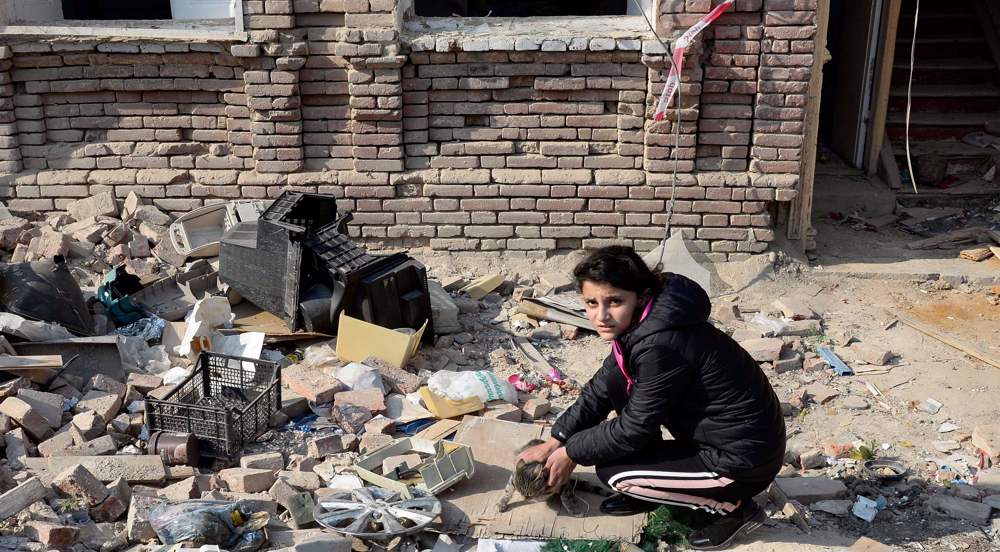



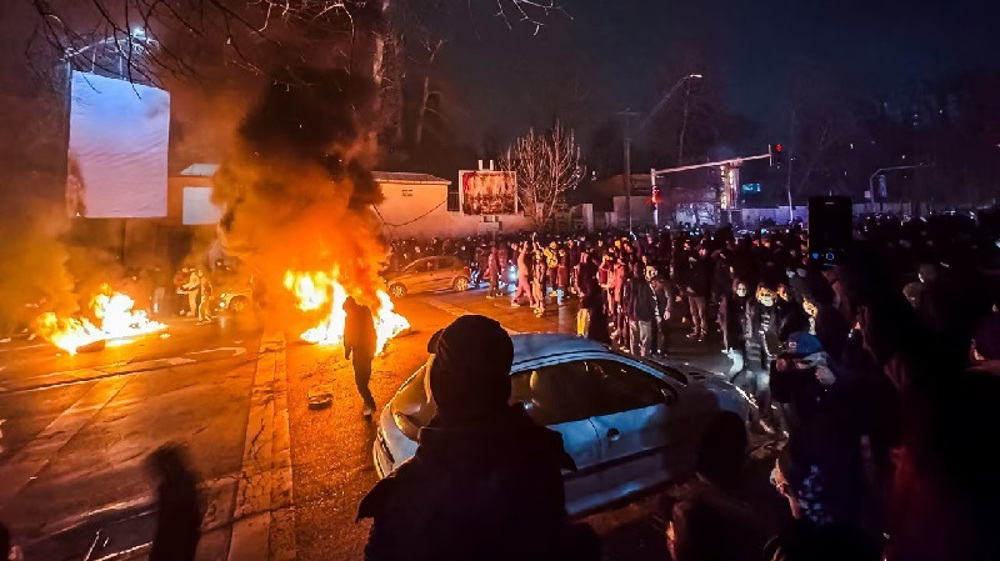
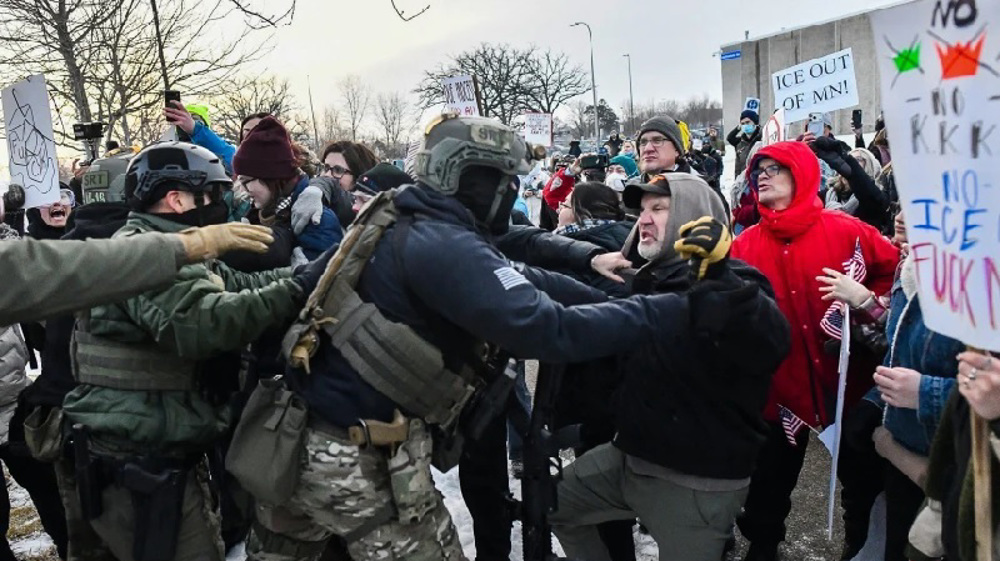







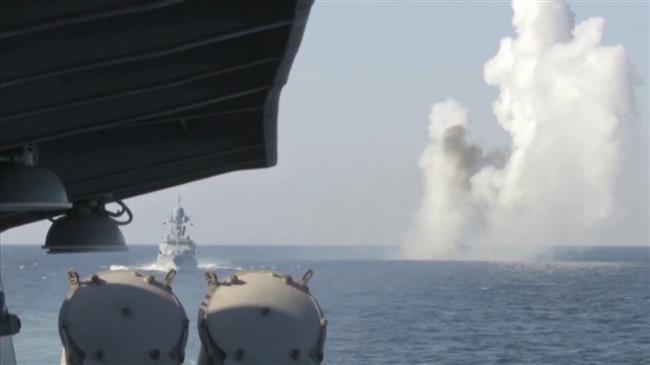

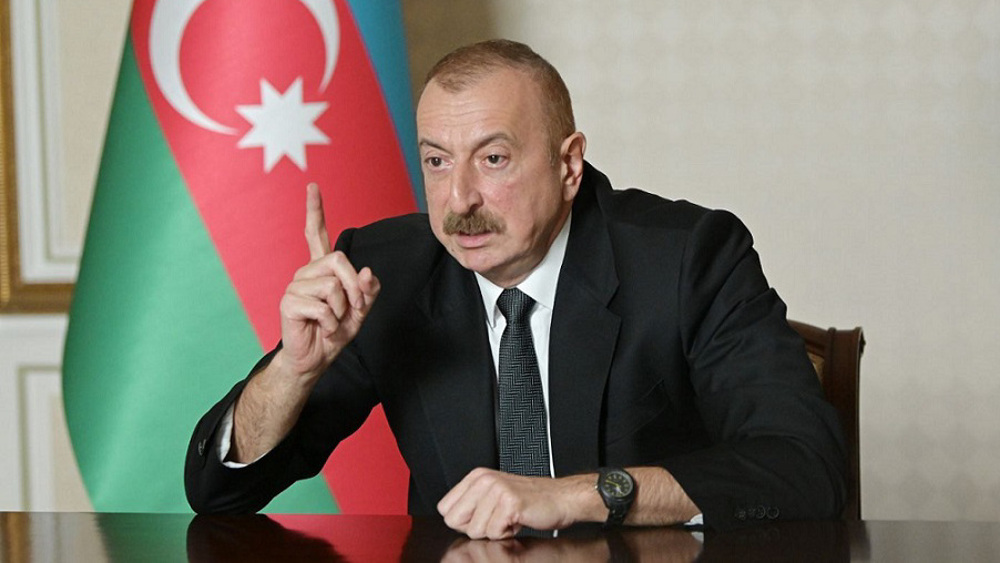



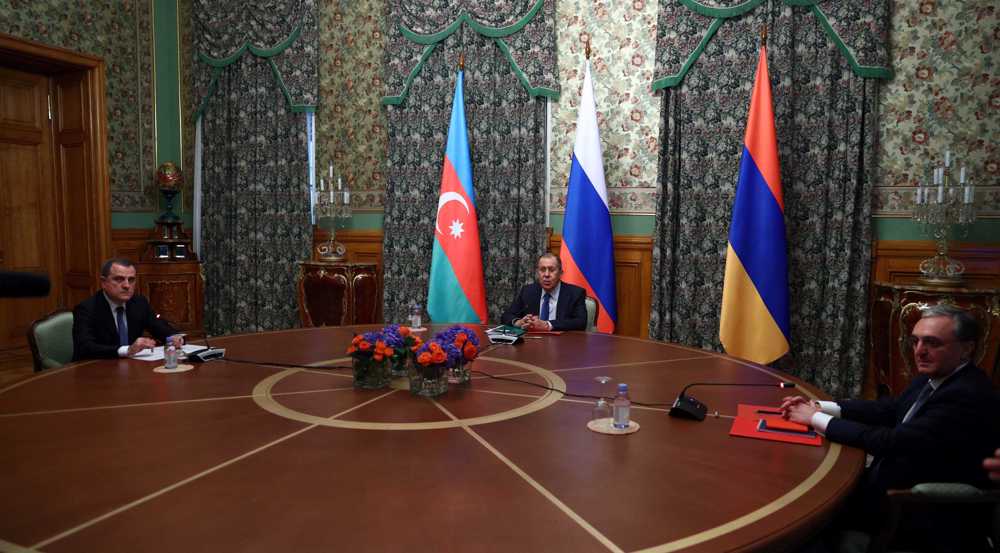

 This makes it easy to access the Press TV website
This makes it easy to access the Press TV website